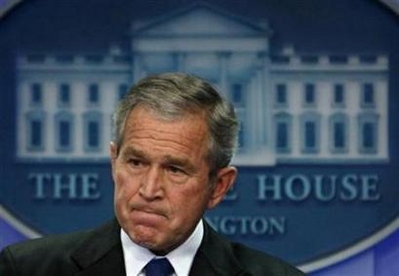Bush vetoes kids health insurance bill
Updated: 2007-12-13 15:01
WASHINGTON - President Bush vetoed legislation Wednesday that would have expanded government-provided health insurance for children, his second slap-down of a bipartisan effort in Congress to dramatically increase funding for the popular program.
It was Bush's seventh veto in seven years - all but one coming since Democrats took control of Congress in January. Wednesday was the deadline for Bush to act or let the bill become law. The president also vetoed an earlier, similar bill expanding the health insurance program.
Bush vetoed the bill in private.
In a statement notifying Congress of his decision, Bush said the bill was unacceptable because - like the first one - it allows adults into the program, would cover people in families with incomes above the US median and raises taxes.
"This bill does not put poor children first, and it moves our country's health care system in the wrong direction," Bush's statement said. "Ultimately, our nation's goal should be to move children who have no health insurance to private coverage, not to move children who already have private health insurance to government coverage."
Bush urged Congress to extend the program at its current funding level before lawmakers leave Washington for their holiday break.
In fact, congressional leaders had already said earlier Wednesday that they now will try only to extend the State Children's Health Insurance Program, or SCHIP, well into 2008 in basically its current form. Their comments signaled that they have given up efforts to substantially expand the program.
The House voted 211-180 late Wednesday to put off until Jan. 23 a vote on overriding the president's veto. "We are not going to let this veto stand," said House Speaker Nancy Pelosi. Republicans said Democrats were scheduling the veto override vote to coincide with the week Bush comes to Congress for the State of the Union address.
The bill passed the Democratic-controlled Senate by a veto-proof margin, but the same was not true in the House. Even after the bill was approved, negotiations continued to find a compromise version that would attract enough Republican lawmakers to override Bush's expected veto. A two-thirds vote in both chambers is required to override a presidential veto.
But that effort was unsuccessful.
|
|
|
||
|
||
|
|
|
|


